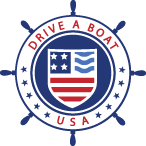Boat Operator Responsibilities and Rendering Assistance
The number of lawsuits related to boating accidents continues to grow. A lawsuit is an expensive, emotionally tolling procedure. Do what you can to avoid problems by taking simple precautions and clearly understanding your responsibilities as a skipper.
In short, follow the rules, inform your guests and help other boaters as needed.
Operator Responsibilities
No boat is completely accident proof. However, your legal responsibility as a skipper is to maintain a reasonably safe environment that is in line with all local boating rules and regulations.
Check everything prior to departure
Before launching your boat, it is important to review the rules of the road and confirm that your signaling, navigation and communication equipment is all in order and working properly.
Refer to a safety equipment checklist as needed. It’s also a good idea to refer to a boat maintenance checklist to confirm you are doing everything possible to keep your boat in good working condition.
By being prepared and staying informed, you can prevent many types of boating trouble.
Keep your boating guests safe and informed
As a boat operator, you are legally responsible for the safety of everyone on board your boat. This means providing adequate safety equipment, making sure your boat is in good condition, and making sound decisions based on weather and water conditions.
It also means respecting regulations regarding boat capacity (never take more people on board than exceeds the weight indicated on your boat capacity plate) and providing a USCG-approved, properly fitting PFD for each person on board.
You are the right person to teach and reassure your guests: you may be familiar with your boat and the right way to behave out on the water, but they may not. Go ahead and explain what they can expect, and how they should respond.
Remember that even if you are unaware of a danger, you could be held liable if someone is hurt. You are required to demonstrate ‘reasonable care’ to do all you can to prevent injury, and remain responsible at all times for:
- Warning guests of any hazards on your boat related to equipment (engine, fuel, etc.) or boat structure (ladders, steps, incomplete repairs, ropes, hazards on deck, etc.)
- Warning guests of dangers that could pose a threat to your boat (passing boat wakes, tides, weather, etc.)
- Informing guests of safety rules and regulations that apply to operating your boat and related activities (water skiing, trailering, etc.)
- Providing appropriate safety equipment while the guest is on your boat, and confirming that they know how to use it properly (fire extinguishers, distress signals, etc.)
Boat passengers also have some responsibility for their own safety, and that of the boat. Remind them that they are responsible for assisting at all times, which includes identifying dangers like changing weather that could lead to poor visibility or rough water, noticing other boats, and keeping the boat stable.
Operate your boat responsibly
Once on board and on the water, you can stay safe by:
- Showing courtesy
- Maintaining a proper lookout
- Obeying no-wake or limited-wake zones
- Managing your waste correctly
- Controlling boat noise
- Respecting speed limits
- Refraining from reckless, careless and negligent operations
- Never drinking alcohol on board
- Obeying all boating laws and regulations
Inform everyone on your boat of correct safety procedures. It’s always wise to have at least one other person on board who is capable of operating the boat in case of an emergency.
Rendering Assistance
Boat operator responsibilities also extend to other boats out on the water. As a boater, you are part of a larger community, and must render assistance to other boaters and others involved in water activities as needed.
Witnessing an accident
If you see an accident or a distress signal, you are responsible for responding to the best of your ability, without putting yourself or your passengers and boat in danger.
If you are unable to help, make a distress signal on behalf of the other boat, or try to enroll the assistance of another boat. Contact rescue personnel as needed.
Remember, there is a set procedure for reporting a boating accident.
Respecting other boaters
Assistance does not only include help under duress. It also includes taking every precaution not to cause harm to others.
Propeller strikes commonly cause injury and even death. Boat operators should exercise extreme caution when people are in the water. Always turn off your engine whenever a person is in the water within a boat length of your boat.
You should also educate your guests about safely navigating the areas around your vessel. This includes activities on shore related to towing and trailering, and also boarding and disembarking. Out on the water, make sure they know how to swim safely near a boat, how to re-board from the water, and what to do if a person falls overboard.
Get your state-specific boating license with Drive A Boat USA
It’s important to know what your responsibilities are as a boat operator. You are legally responsible for respecting local and national rules and regulations, informing guests of hazards and of their responsibilities as passengers, and helping other boaters as needed.
When you prepare to get your state-approved boating license, you will learn all about the boating laws that apply to your specific state, and earn a boating card that proves you know what you’re doing.
Get your license online from Drive A Boat USA from anywhere in the country, including New York, California and Florida!

